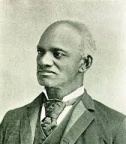Everything about the early bluesmen is speculative. Questions of authorship and transmission, the development of tunings and signature licks; even their dates and the arcs of their careers are subject to the confusions of oral tradition, the displacements and erasures of black history, a history of the negated. In the case of Robert Johnson, especially, history has had to contend with a myth-making apparatus geared up to broadcast the tale of an American Faust.
The story of Johnson selling his soul to the devil has been long dismissed by modern scholars, who generally follow Lomax’s claim that the legend was the inevitable result of a cultural climate in which “every secular black musician was, in the opinion of both himself and his peers, a child of the devil, a consequence of the black view of the European dance embrace as sinful in the extreme.”
Most sources now agree that in the winter of 1929 when Johnson disappeared from the jukes and roadhouses he frequented with Son House — the year when, according to the legend, Satan was tuning his guitar – Johnson travelled to Martinsville, Mississippi to sit at the feet of a local guitar master, Isaiah “Ike” Zimmerman. When he returned to House and his circle late in 1930 Robert Johnson was a musician transformed.
Only two photographs of Zimmerman survive: one taken in youth and one in old age. (Ike died in 1967.) Also several family traditions: that he was a doting father and family man, and that he, alone and later with his protégé, liked to practice his instrument at night in local cemeteries. This was not to channel the powers of darkness, of course, but to avoid waking Zimmerman’s many children when he played, sleepless, late at night. Blues historian Bruce Cornforth has identified numerous graveyards in the Martinsville-Hazelhurst area where Zimmerman and Johnson played, including Ike’s supposed favorite: the Beauregard cemetery, locally famous for its cypresses, off Highway 51.
Remarkably, in this most shadowy corner of black history something like scholarly consensus has been achieved. No devil, no magic – just a musician and his teacher seated atop Mississippi gravestones in the night, practicing the Blues. One question remains, however, and none of our sources has addressed it. Not Cornforth, not Wardlow, not Wald or Guaralnik. No one has considered what the dead thought of the music.
Word. Those backward-ass,
up-the-country niggaz
laying up there in the cold
cold ground would have
thought they heard
the devil.
And not some metaphorical,
Alan-Lomax, cultural-climate
kind of devil, but the real
devil-devil. Azriel or
Azazel or some
shit like that.
Those old Baptists
and Evangelicals laid
out in their pinewood overcoats,
figuring the train to Beulah-land
running just a little late, they
could tell you all about the devil.
And they’d be right, too, because
the devil just loves Mississippi.
And all those dead chumps,
looking up at the cypress roots
and hearing those blues,
they sure-enough didn’t hear
the same music that punk-ass
bitch Langston Hughes heard.
Langston Hughes had such
a hard-on for James Joyce
he tried to make the
blues into the uncreated
conscience of the Nee-gro
race.
But those dead people
didn’t hear the uncreated
conscience of their race.
They heard something that
chilled their shit, something
that sounded heathen.
What they surely heard
— through all the layers
of a soil that was done
trading sweat for cotton –
was two old boys playing
a music that was alive.
And those dead niggaz would
have hated that. Because
sweating, humping, moaning
and testifying, the blues are
alive. And the dead – well,
the dead are just fucked.
 Isaac Mason is the name assumed by a person working under fraudulent credentials as a menial in a Chicago law firm. He lives, with many cartons of books, in a neighborhood where you would not feel comfortable.
Isaac Mason is the name assumed by a person working under fraudulent credentials as a menial in a Chicago law firm. He lives, with many cartons of books, in a neighborhood where you would not feel comfortable.
